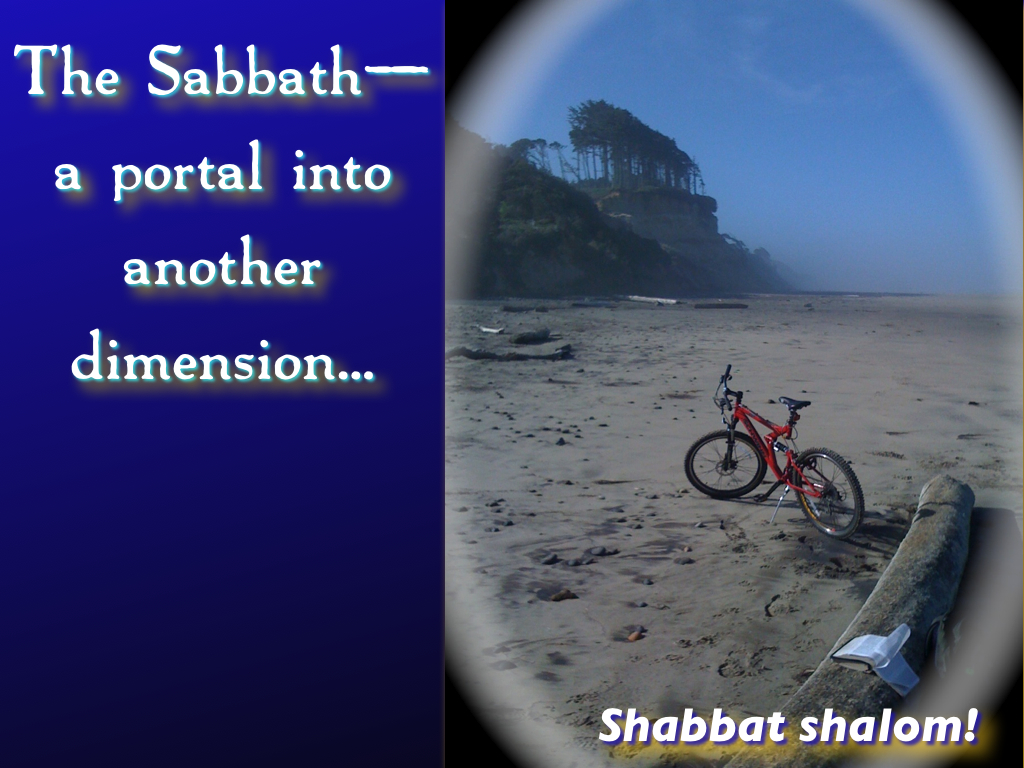The “Sacrifice of Praise” Explained

Psalm 116:17, Sacrifice of thanksgiving.
Elsewhere, the psalmist refers to this as “the sacrifice of joy” or praises (Ps 27:6; see also Jer 17:26; 33:11; Heb 13:15), “the sacrifice of righteousness” (Ps 4:5), “the sacrifice of thanksgiving (Ps 107:22), “the freewill offerings of my mouth” (Ps 119:108). Similarly, he declares that the sacrifices of Elohim are broken spirit and a contrite heart” (Ps 51:17).Paul expresses this concept as “presenting your bodies as a living sacrifice” (Rom 12:1). Why are such sacrifices pleasing to Elohim?
For I desire mercy and not sacrifice, and the knowledge of God more than burnt offerings. (Hos 6:6)
In Matthew 9:13 and 12:7, Yeshua responds to those who were criticizing him for his unconventional religious activities by quoting Hosea 6:6. He goes on to imply that mercy as well as fasting as opposed to literal animal sacrifices is “a new wine skin” for his disciples replacing the old wine skin of animal sacrifices.
Why is the new wine of sacrifice of mercy, praise, righteousness, thanksgiving, a broken spirit and a contrite heart preferable to YHVH-Yeshua over animal sacrifices? The answer should be obvious. One can offer animal sacrifices or perform other religious duties and activities all day long, and never have a heart change. Such means nothing means to Elohim if the sacrifice isn’t accompanies by contrite, repentant, worshipful and thankful heart. Moreover, a sacrifice costs the one giving the sacrifice something, but giving means nothing to Elohim unless it is coupled with a correct heart attitude. Similarly, acts of service are merely a clanging gong and tinkling bell to Elohim if not accompanied by a heart of love (1 Cor 13). YHVH wants hearts that want to love and obey him, not empty acts of religiousity that are done for show and pretense, often out of human pride. Hosea expresses what YHVH wants from humans:
O Israel, return to YHVH your Elohim, For you have stumbled because of your iniquity; take words with you, And return to YHVH. Say to Him, “Take away all iniquity; receive us graciously, for we will offer the sacrifices of our lips. Assyria shall not save us, we will not ride on horses, nor will we say anymore to the work of our hands, ‘You are our gods.’” For in You the fatherless finds mercy. I will heal their backsliding, I will love them freely, for My anger has turned away from him. I will be like the dew to Israel; he shall grow like the lily, and lengthen his roots like Lebanon. his branches shall spread; his beauty shall be like an olive tree, and his fragrance like Lebanon. Those who dwell under his shadow shall return; they shall be revived like grain, and grow like a vine. Their scent shall be like the wine of Lebanon. Ephraim shall say, “What have I to do anymore with idols?” I have heard and observed him. I am like a green cypress tree; your fruit is found in Me. Who is wise? Let him understand these things. Who is prudent? Let him know them. For the ways of YHVH are right; the righteous walk in them, but transgressors stumble in them. (Hos 14:1–9)
To Elohim, such a sacrifice that involves the actual heart conversion of the offerer is a “pure offering” and is sweet smelling incense (Mal 1:11; Ps 141:2; Rev 5:8; 8:3), and YHVH will not rebuke his people for such a sacrifice (Ps 50:8).
Yeshua himself set his followers the example of laying down his life by giving himself for us as living sacrifice (Eph 5:2; Heb 9:26), an offering as a sweet smelling aroma to Elohim, even as Paul did in his life and ministry (Phil 2:17). Yeshua’s disciples will follow his and Paul’s example and do the same (1 Cor 11:1; Eph 5:2; Phil 4:18; 1 Pet 2:4).
Seek Elohim and Be Blessed!

Psalm 112:1, Blessed is the man. YHVH promises blessing upon those who fear him and delight in his commandments. This is such a simple concept to understand that it’s shocking that more people can’t grasp it! When you acknowledge the Almighty Creator of all things, who is the Just Judge of the universe and the Supreme Lawgiver and you seek him, serve him with reverence and live by his rules, it all stands to reason that you’ll reap some benefits. The blessings resulting therefrom are incalculable; the psalmist lists a few of them in the following verses.
Verse 2—His descendants will be mighty upon the earth. The Hebrew word for mighty is gibbor meaning “powerful; by implication warrior, or champion, chief, giant, mighty, strong (man), valiant.” When we think of the concept of mighty, we mustn’t fall into the trap of defining mighty as the world defines it, which usually involves money, power and fame. One can be gibbor in YHVH’s sight and not possess those attributes that society requires for one to be considered “great” or “mighty.”
Verse 3—He will possess wealth and riches. Wealth is the Hebrew word hon meaning “enough.” Therefore, the Bible defines wealth as having enough. How does one define enough? How many people on earth don’t have enough? What are our needs versus or wants? If our needs are met, then we have enough. If we have more than that, then we have an over abundance and are truly wealthy.
Verse 3—His righteousness endures forever. What does this mean? This can be taken to mean several things. First, his righteousness endures through is posterity because he has raise his children in the fear of Elohim, and they in turn pass these values on to their children and so on. Second, as salt and light, he has also influenced the world around him make it a more positively and a better place. Like a pebble dropped into a lake, the ripples of his actions will reach out and touch many lives for years to come. Third, the righteous man has the hope of eternal life, therefore, both he and he will live forever before Elohim because he fears Elohim in righteousness. What is righteousness? It is adherence to the commandments of Elohim (Ps 119:172) and delighting in said commandments (Ps 112:1).
Continue readingYeshua, the Light of the Morning and Born of a Virgin, Prophesied in Psalms

Psalm 110:1–7, From the womb of the morning. We have once again before us another one of the classic Messianic passages in the Hebrew Scriptures and this has been so recognized by both Jewish and Christian theologians for millennia (Heb 1:13; Acts 2:34; 1 Cor 15:25; Eph 1:21–22; Matt 22:41–46). For example, the medieval rabbinical sages Rashi, Ibn Ezra and others recognized the Messianic implications of this Psalm The Messiah in the Old Testament, p. 123ff, by Risto Santala).
The phrase, “from the womb of the morning/dawn” is an interesting one. Christian exegetes have interpreted this to be speaking of the virgin birth. Early church father, Justin Martyr, understood this phrase to be a reference to the virgin birth (Dialogue, chap. 63, ca. a.d. 160). Adam Clarke, apprentice to and then associate of John Wesley, in his notable commentary (1810-1826), writes: “As the dew flows from the womb of the morning, so shall all the godly from thee. They are the dew of thy youth; they are the offspring of thy own nativity. As the human nature of our Lord was begotten by the creative energy of Elohim in the womb of the virgin; so the followers of Elohim are born, not of blood, nor of the will of the flesh, but by the Divine Spirit” (Clarke’s Commentary, vol. 3, p. 582).
The word womb is the Hebrew word rechem (Strong’s H7358) and the KJV translates this word as womb in 21 of 26 times it occurs in the Hebrew Scriptures. Quite frankly, womb is what this word means both literally and figuratively.
The next word under consideration is morning which is the Hebrew word mishchar (Strong’s H4891) meaning “day-breaking or dawn.” Psalm 110:3 is the only occurrence of this word’s usage in the Hebrew Scriptures, therefore, there is no linguistic backdrop against which to juxtapose this word to ascertain easily its meaning.
Let us therefore take another approach to unlocking the mystery of this phrase. Are there other Scriptures which express parallel ideas relating the Messiah’s coming to being similar to the sun’s rising which may give us an expanded meaning?
Continue readingThe Importance of the Seventh Day Sabbath

Exodus 16:4–30,The importance of the Sabbath.This chapter chronicles YHVH’s efforts to literally force an irreverent, unruly and disobedient nation to keep the seventh day Sabbath.
Observance of the seventh day Sabbath was one of the first things YHVH taught his people after coming out of Egypt. This shows the importance of this commandment in the eyes of the Creator. Egypt is a biblical metaphor for this world, Passover is a picture of salvation and coming through the Red Sea is a picture of baptism for the remission of sins. This teaches us that Sabbath observance is one of the first acts of obedience that a new believer will do after “being saved.” All arguments to the contrary—about how the Sabbath was done away with or exchanged for Sunday—are meaningless, irrelevant and antibfiblical lies having been propagated by liars, deceivers and the biblically ignorant. Period.
In this chapter, YHVH endeavored to teach the Israelites the importance of the Sabbath in a most poignant way and pragmatic way—through food and hunger.
It’s as if YHVH were instructing the stiff-necked and rebellious Israelites that if they refused to follow his Sabbath instructions, they would literally go hungry: “If you don’t obey me, you don’t eat.”
This shows the gravity the Creator places on the Sabbath command. Yet despite these clear instructions, most in the Babylonian (Rev 18:4) mainstream church today, like the rebellious children of Israel of old, refuse to obey YHVH’s clear instructions regarding the Sabbath. Instead, they prefer to believe the doctrines of men proffered to them by their spiritual leaders that purport to invalidate the Sabbath command. Paul’s sage observation in Romans 8:7 describes the situation perfectly: “Because the carnal mind is enmity against Elohim: for it is not subject to the [Torah] law of Elohim, neither indeed can be.” In our day, the same question can still be asked of followers of Yeshua that YHVH asked of the Israelites at that time, “How long do you refuse to keep my commandments and my laws?” (Exod 16:28).
Continue readingWhat does, “the law and prophets were until John” mean?

Luke 16:16, The Torah and the Prophets. Many people in the mainstream church view this passage as drawing a defining line between the so-called age or dispensations of law (in the Old Testament or Tanakh) and the age or dispensation of grace (in the New Testament or the Testimony of Yeshua). This in turn, in their minds, sets the Tanakh (which reveals the law or Torah) and Testimony of Yeshua (which supposedly reveals the concept of grace) at odds with each other. Is this a correct interpretation of this passage?
The evidence within the Testimony of Yeshua itself doesn’t support this common Christian interpretation, however. In no way is Yeshua annulling the Torah here, or else he would be contradicting what he clearly taught in Matthew 5:17–19. Furthermore, Yeshua’s statement here can’t possibly mean that the Torah was now obsolete in the Testimony of Yeshua, since the apostles and early believers adhered to the Torah long after the passing of John the Baptist (Yeshua, p. 41, by Ron Mosely). Additionally, Paul’s statement in Romans 3:31 that the Torah is not voided by grace should dispel any notions that Luke 16:16 implies that the Torah would pass from the scene in the life of believers.
There are a couple of ways to understand this passage without doing violence to the Torah. First, it could be understood that Yeshua is saying that the Law and the Prophets were the only Scriptures in existence up to the time that John came on the scene. The implication is that more would soon come (ibid.).
A second way to view this passage is that Yeshua is stating that the Torah and the Prophets prophesied or pointed to the time when John would come thus ushering in the Messiah at which time there would be a change in the focus of the message of YHVH’s servants. Instead of just preaching about the Torah or that the Messiah is coming, now the message of “repent for the kingdom of heaven is at hand” (see Matt 3:2; 4:17) would be preached. This is a more expansive message that focuses now more on the salvation message centered on the death, burial and resurrection of Yeshua. This message also includes obedience to the Torah (e.g. Yeshua said, “If you love me, keep my Torah commandments” in John 14:15, also 1 John 2:2–6). Moreover, Paul clearly affirms the validity of the Torah for the New Testament believer in his forceful declarative statement in Romans 3:31,
Do we then make void the law through faith? Elohim forbid: yea, we establish the law.
The data found in the actual writings of the apostles confirms what Yeshua predicted in this verse. Of the some 8,000 verses in the Testimony of Yeshua, well over one-fourth of those verses contain direct references to the Person of Yeshua, while there are only about 260 direct references to the Torah. Yeshua himself confirms his own words as recorded by the Gospel writers. In the Gospels of Matthew and John, Yeshua spoke on 136 different subjects. The number one subject he talked about was himself (316 references), followed by his Father (184 references), then hypocritical leaders (177 references). The kingdom of Elohim comes in fourth place (77 references) and the Torah is in seventh place with 44 references.
The Dynamics of Sin, Sickness and Healing Explained

Exodus 15:26, I am YHVH that heals you. This is the first place in the Scriptures where YHVH promises to heal his people of sickness. Here is a list of other biblical verses containing similar promises: Deut 7:12 and 15; Pss 30:2–4; 34:18–19; 41:1;91 (entire chapter); 103 (entire chapter); Isa 40:28–31; 53:4–5; Jer 17:13–14; Mal 4:2; Mark 11:23–24; Luke 10:19; John 14:13; 15:7; 15:16; 16:23–24; Rom 8:31; 8:37; Phil 4:13; Jas 5:14–16; 1 Pet 2:24. Notice the stipulations that YHVH makes for his promise of healing to be fulfilled upon his people. His people must “diligently heed [Heb. shema meaning “to hear and to do”] the voice of YHVH by doing what is upright [Heb. yashar meaning “right, righteous, correct, straight] in his sight by obeying his Torah.
Is There a Connection Between Sin and Sickness?
What if any is the connection between the sins we commit and the sicknesses and diseases that come upon us? Much, as the Bible teaches.
First, let’s establish some basic truths.
- Everyone will eventually die, so not all sickness is a result of sin (Heb 9:27).
- Some sickness isn’t due to sin, but so that YHVH might be glorified when the person is miraculously healed (John 9:2–3).
- The purpose of some sickness is for spiritual refinement to bring us to a higher level spiritually as was the case with Job.
In a general sense, pain, suffering and death came upon all men because of Adam and Eve’s initial rebellion against YHVH Elohim in the Garden of Eden. As a result of the “fall of man,” all men have come under this curse and suffer as a result.
Unto the woman [Elohim] said, I will greatly multiply thy sorrow and thy conception; in sorrow thou shalt bring forth children; and thy desire shall be to thy husband, and he shall rule over thee. And unto Adam he said, Because thou hast hearkened unto the voice of thy wife, and hast eaten of the tree, of which I commanded thee, saying, Thou shalt not eat of it: cursed is the ground for thy sake; in sorrow shalt thou eat of it all the days of thy life; thorns also and thistles shall it bring forth to thee; and thou shalt eat the herb of the field; in the sweat of thy face shalt thou eat bread, till thou return unto the ground; for out of it wast thou taken: for dust thou art, and unto dust shalt thou return. (Gen 3:16–19)
Some sickness is a direct result of disobeying YHVH’s commandments; it’s YHVH’s judgment against that sin. In Exodus 15:26, YHVH speaks about not putting the diseases of Egypt upon his people if they will follow his commandments.
Continue reading
